Celebrating Farm to School Month!
go.ncsu.edu/readext?1035268
en Español / em Português
El inglés es el idioma de control de esta página. En la medida en que haya algún conflicto entre la traducción al inglés y la traducción, el inglés prevalece.
Al hacer clic en el enlace de traducción se activa un servicio de traducción gratuito para convertir la página al español. Al igual que con cualquier traducción por Internet, la conversión no es sensible al contexto y puede que no traduzca el texto en su significado original. NC State Extension no garantiza la exactitud del texto traducido. Por favor, tenga en cuenta que algunas aplicaciones y/o servicios pueden no funcionar como se espera cuando se traducen.
Português
Inglês é o idioma de controle desta página. Na medida que haja algum conflito entre o texto original em Inglês e a tradução, o Inglês prevalece.
Ao clicar no link de tradução, um serviço gratuito de tradução será ativado para converter a página para o Português. Como em qualquer tradução pela internet, a conversão não é sensivel ao contexto e pode não ocorrer a tradução para o significado orginal. O serviço de Extensão da Carolina do Norte (NC State Extension) não garante a exatidão do texto traduzido. Por favor, observe que algumas funções ou serviços podem não funcionar como esperado após a tradução.
English
English is the controlling language of this page. To the extent there is any conflict between the English text and the translation, English controls.
Clicking on the translation link activates a free translation service to convert the page to Spanish. As with any Internet translation, the conversion is not context-sensitive and may not translate the text to its original meaning. NC State Extension does not guarantee the accuracy of the translated text. Please note that some applications and/or services may not function as expected when translated.
Collapse ▲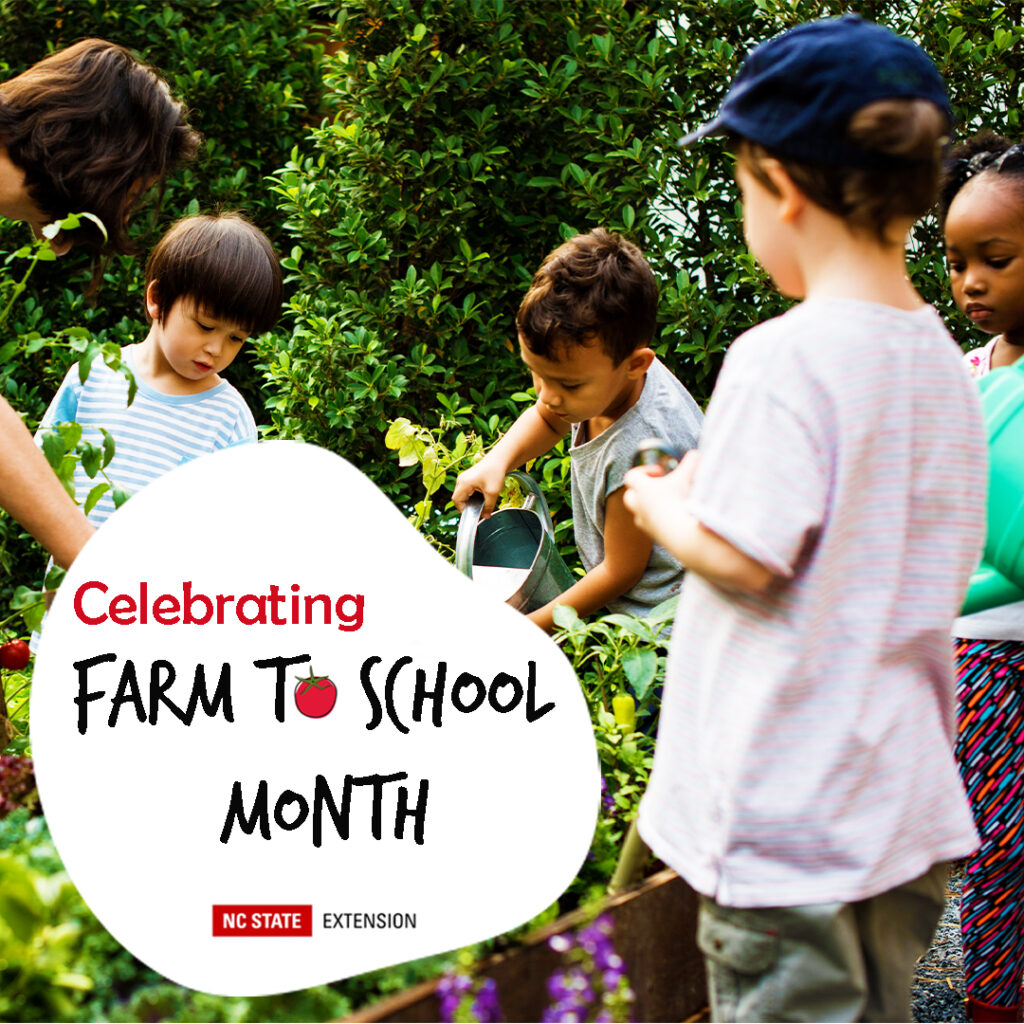
Farm to School Month is underway! Every October, partners from across the country come together to celebrate and highlight the wonders of farm to school. It is a beautiful time for schools and communities to share their amazing farm to school activities. Our Farm to School team at NC State University Extension is excited to share some of the ways we have been celebrating Farm to School Month.
N.C. Cooperative Extension, Randolph County Center
Alison Walker Allen, the 4-H Youth Development Extension Agent has been celebrating Farm to School Month by cooking with her students. Together, they have been learning more about apples and pumpkins. Through a new partnership with Archdale Public Library, Randolph County Center offers one in-house program a month to homeschool families. In addition to these programs, the homeschool families can take a field trip every month or every other month.
The pumpkin program was the first program offered through this partnership. They learned about the life cycle of pumpkins, tasted pumpkin muffins made by Randolph County’s FCS (Family and Consumer Sciences) Agent, and then made pumpkin slime. Additionally, the library carved a pumpkin so students could observe the decomposition process as they came back to visit.
Apple activities were another hit with Randolph County students! Students were able to celebrate NC Crunch at the Liberty Public Library where they could taste two kinds of apples, apple cider, dried apples, and apple butter.
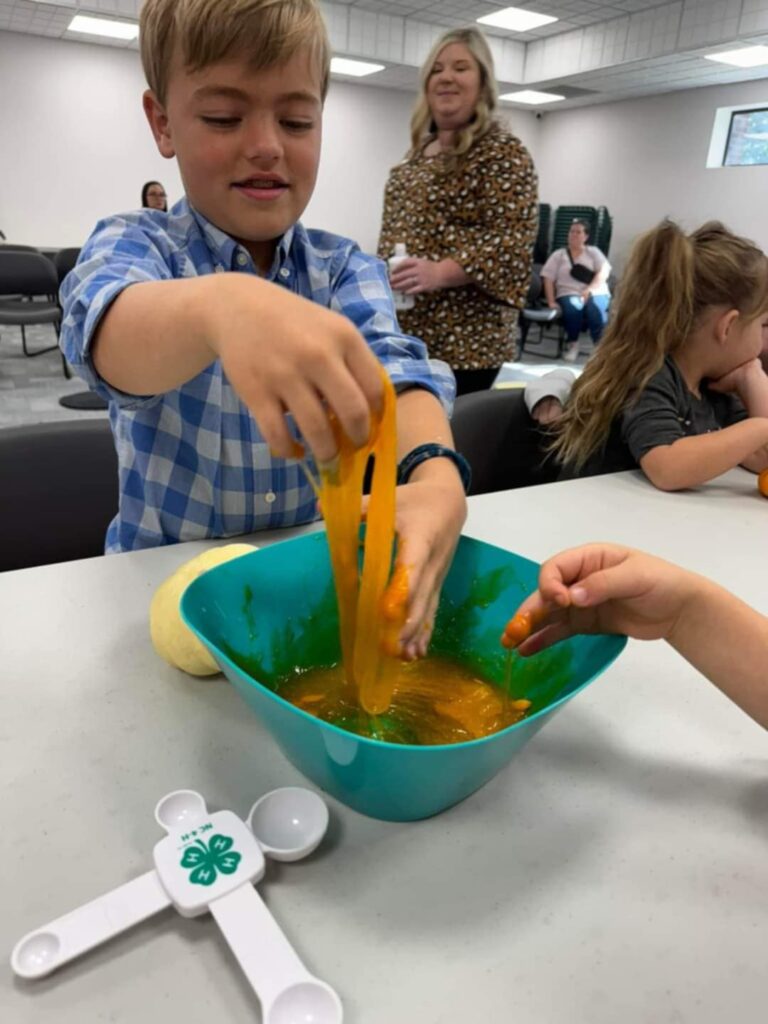
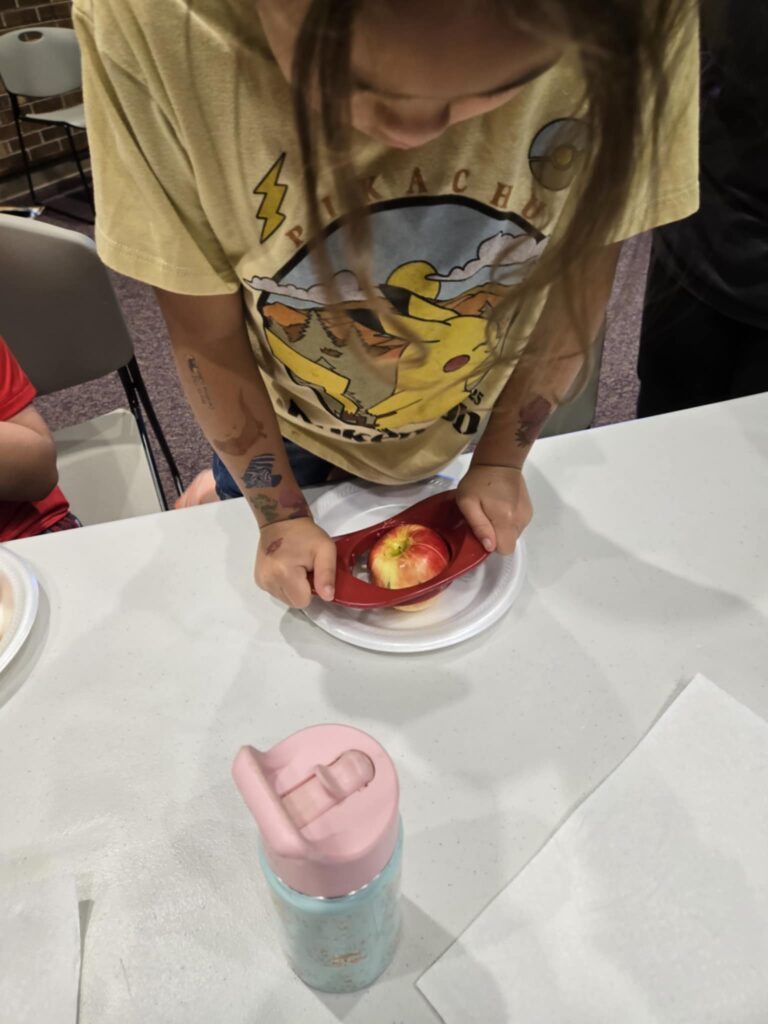
NC State 4-H at the North Carolina Fair
North Carolina 4-H has a program at the NC State Fair for youth to collect insects and create a display. These insect collections teach young people about what insects we share the world with and what their role in our ecosystem might be. By collecting insects, we can study them further and learn to identify them. Once we know what an insect is, we can understand topics like conservation and management of native and invasive populations.
For schools, a class insect collection can be a way to have a visual representation of what insects visit the garden. Do you have important pollinators or insects that manage pests? If not, it might invite a research project to figure out what you could do to attract more. You can integrate life cycle learning by observing and collecting insects from the garden and build a deeper, hands-on understanding of food chains, predator and prey relationships, and ecosystem operations.
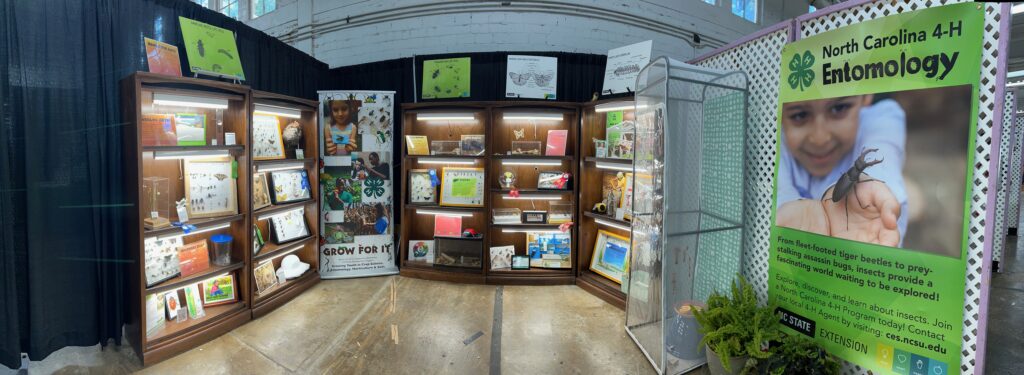
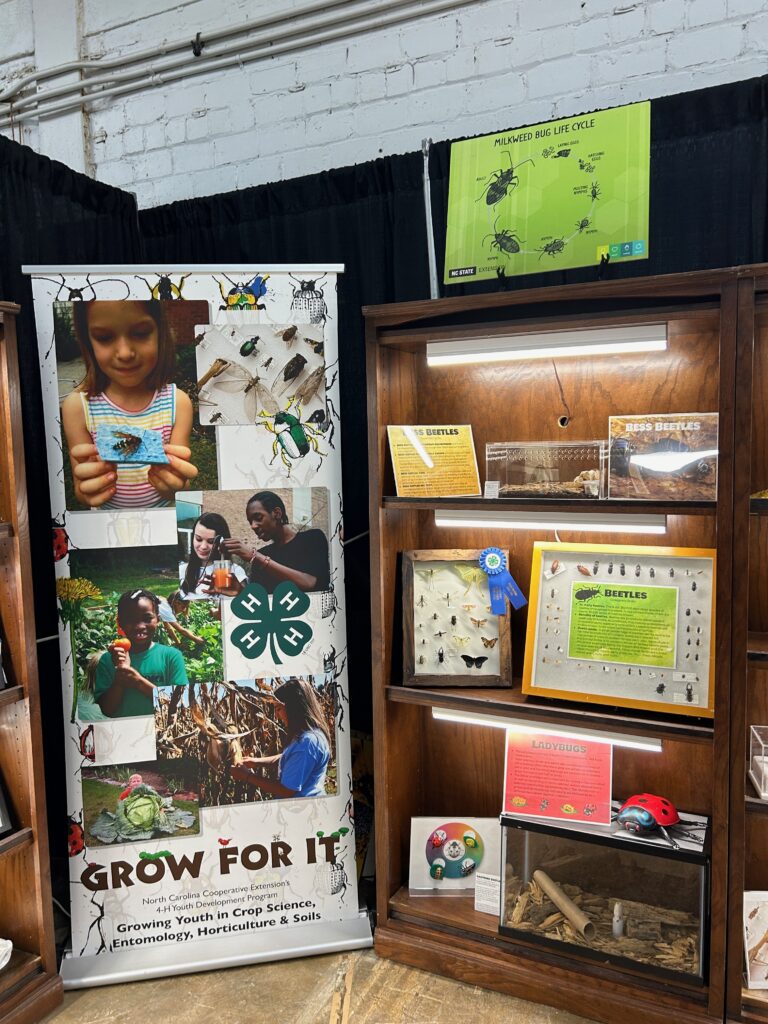
Ways to Celebrate
Watch: Our growing collection of Youtube videos highlights the ways in which partners around North Carolina celebrate farm to school all year long. You can also learn about NC Extensions connection and dedication to farm to school.
Explore: Frequently, we had new resources to our NC Extension portal. Whether you are new to farm to school, looking to expand your school garden, or wanting to learn more about local food procurement, we’ve got you covered!
Participate: An excellent way to celebrate National Farm to School Month is by participating in the North Carolina Crunch. The NC Crunch is also a great opportunity to thank all those involved in feeding our communities. This event is about uniting together to celebrate North Carolina agriculture, locally grown fruits and vegetables, and healthy eating. Participants of all ages are invited to crunch with their schools, early care and education sites, organizations, families, or communities. Help us reach all 100 counties and 500,000 kids and adults with the NC Crunch!
Share: Let us know how you are celebrating National Farm to School Month by tagging our partners on Facebook and Instagram!
- NC State Extension Local Food Program Team (@localfoodncstate)
- Farm to School Coalition of NC (@f2scoalitionnc)
- National Farm to School Network (@farmtoschool)


